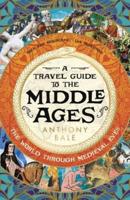Publisher's Synopsis
There has long been a need for a straightforward but vigorous account of twentieth-century Ireland. Some books begin in or about 1922, which makes it difficult to contextualise the conflicts of the 1920s, conflicts that have remained central to the structure of politics in Ireland. Northern Ireland is frequently dealt with awkwardly (as a sort of appendage) or not at all, tending to echo, and perhaps reinforce, partition. Some books cover such a broad span of years that it is difficult for them to do full justice to the issues of the present century. Charles Townsend's account, by contrast, integrates north and south as far as possible (though it is not anti-partitionist in any simple political sense), provides a full context for the crisis-ridden years of the 1920s, and treats the important issues of the century in sufficient analytical depth. The text is characterised by intellectual stringency and intuitive flair, making original connections and raising unexpected questions.;It takes account of their intense dispute between 'revisionist' historians and their opponents since that concerns essential issues in modern Irish identity, but it does so within a simple framework of largely sequential chapters, foregrounding salient events, together with new historical findings and interpretations. It is an exciting and important book for those interested in the course of modern Irish history.






